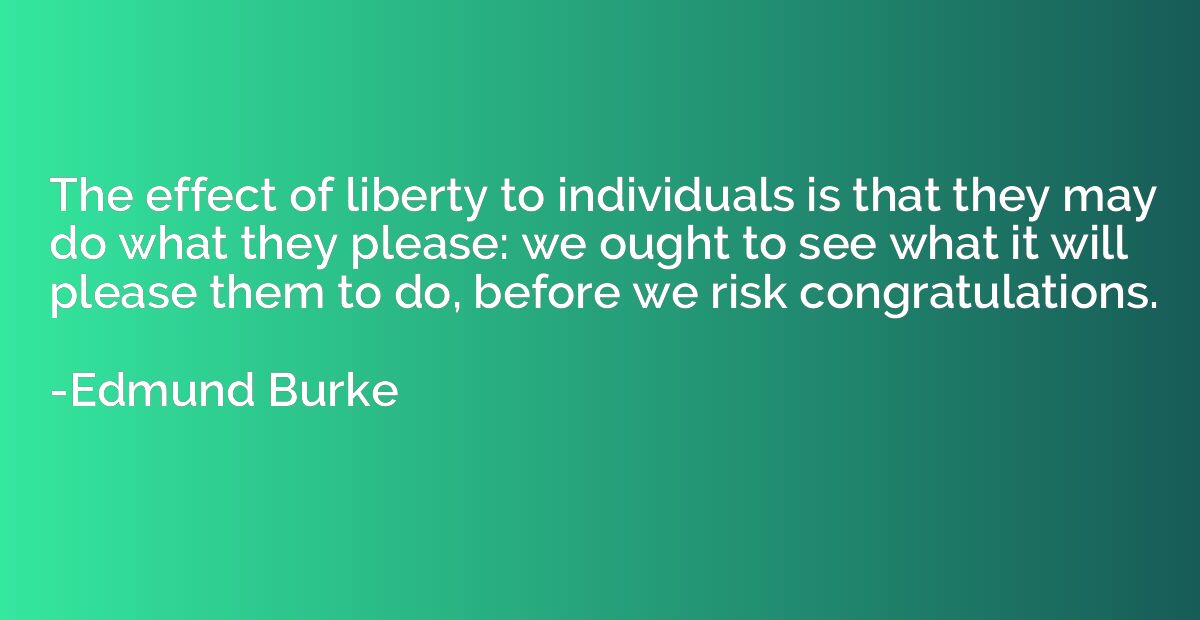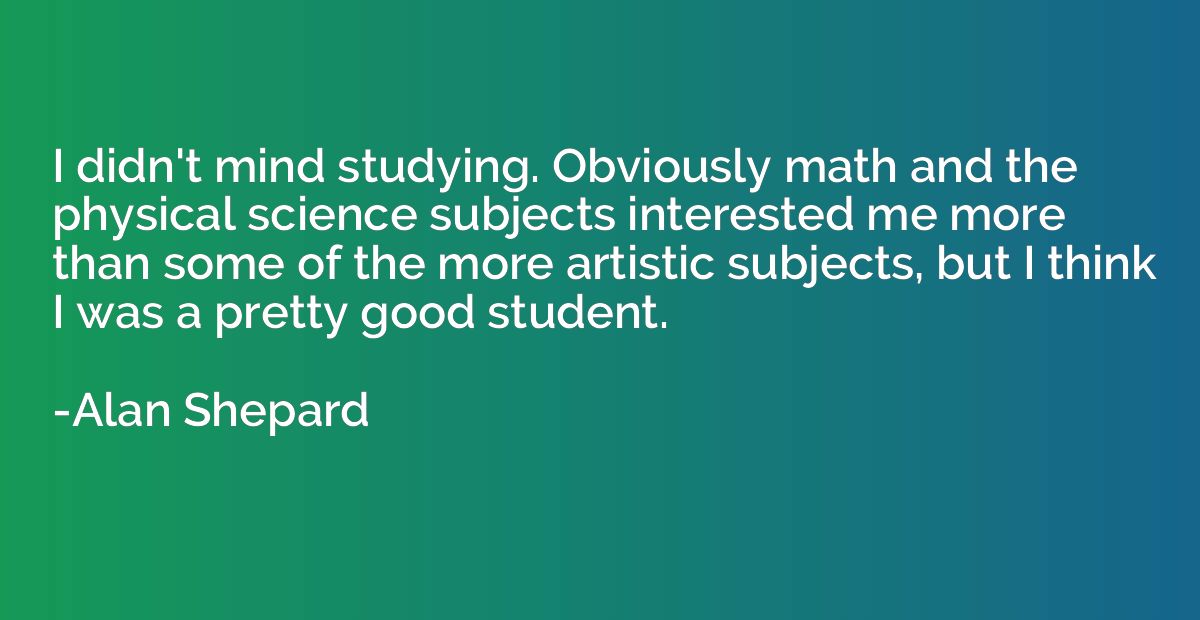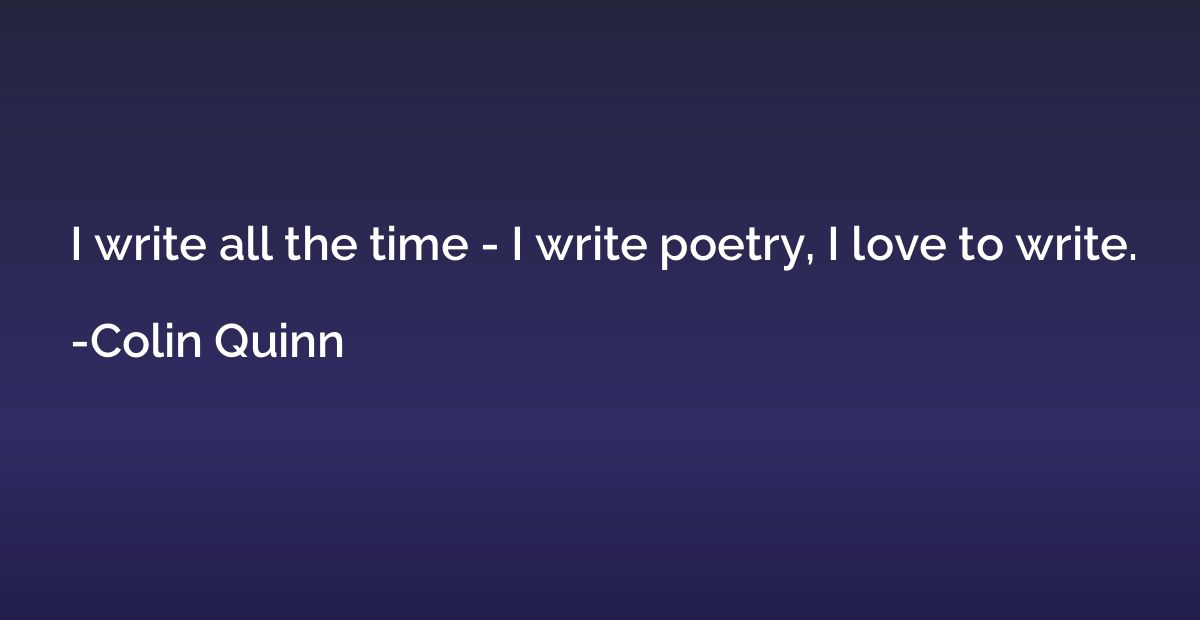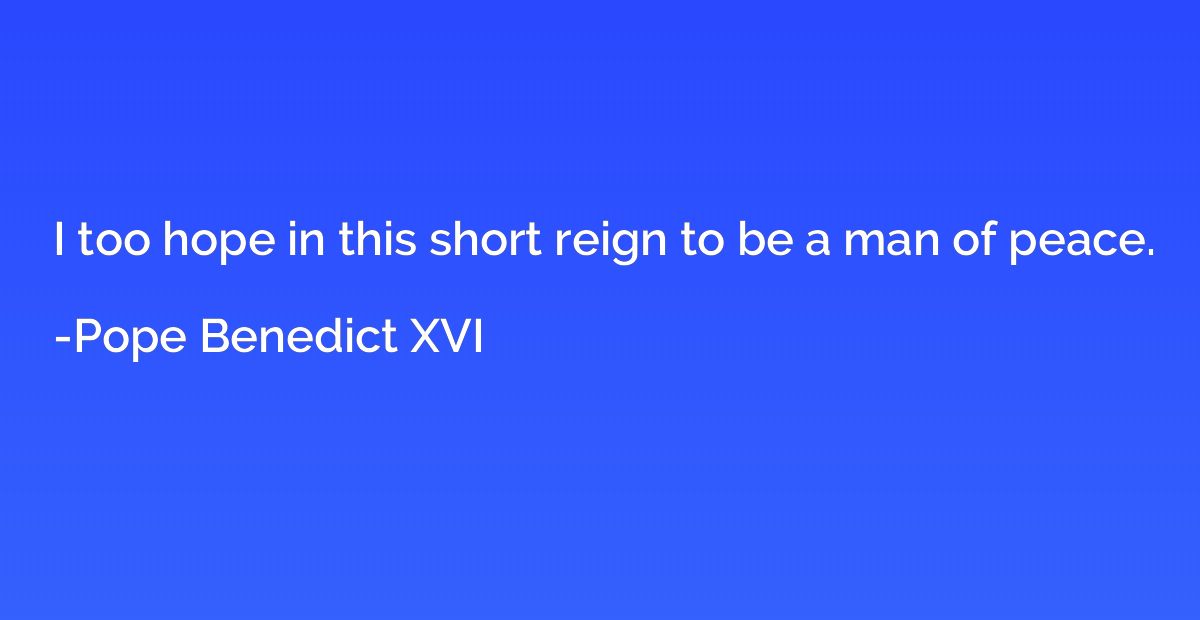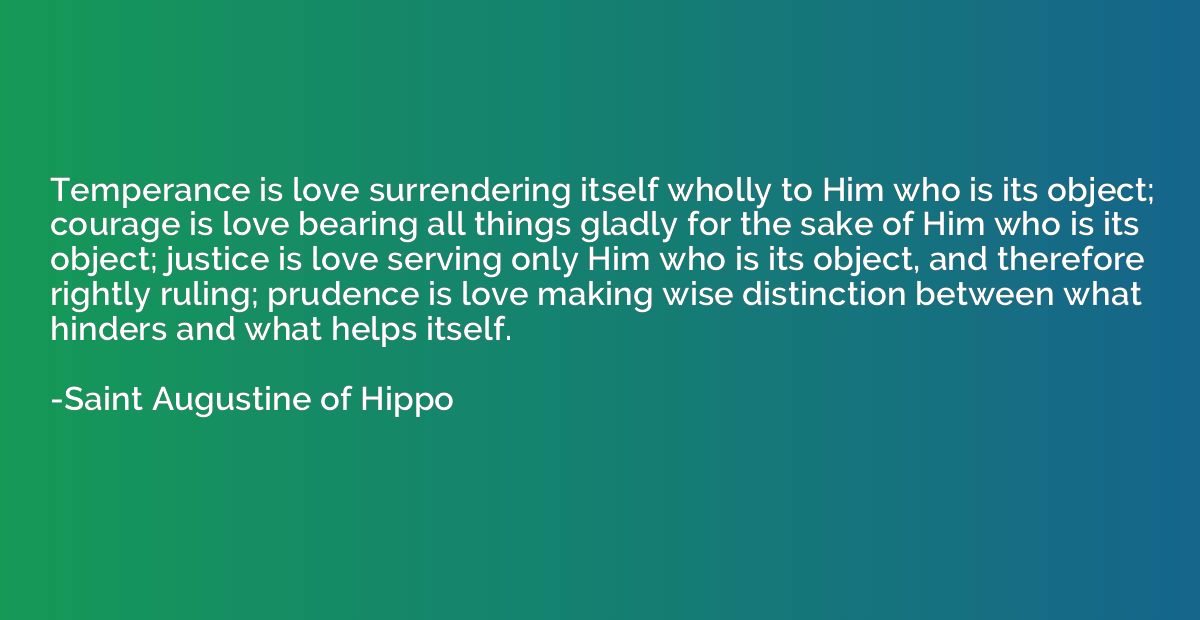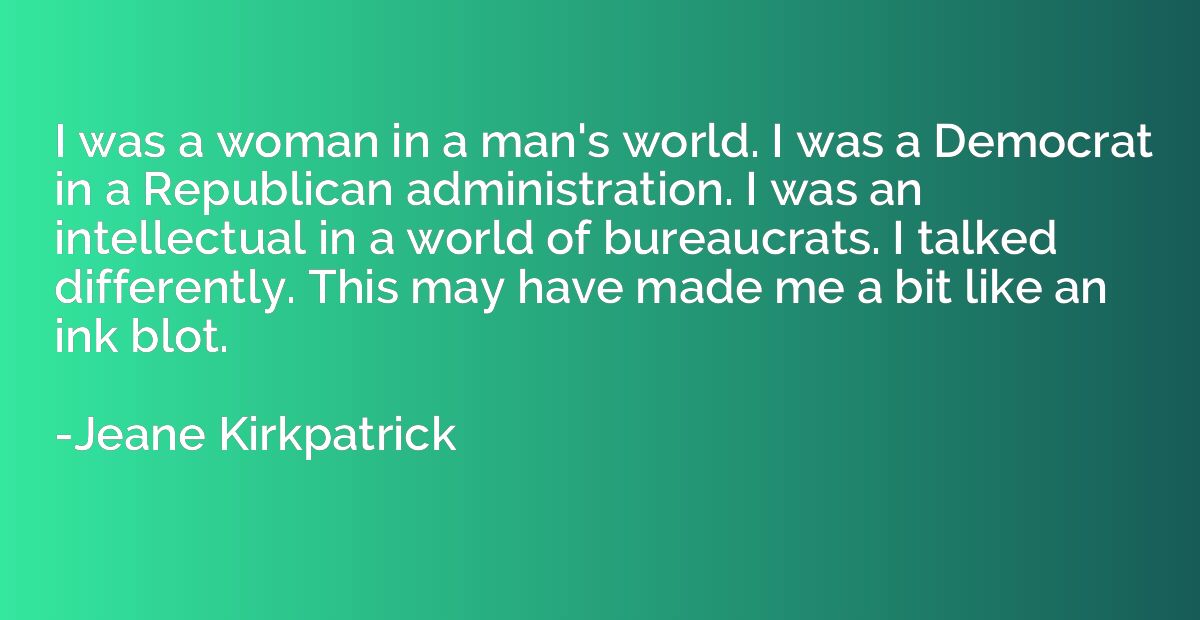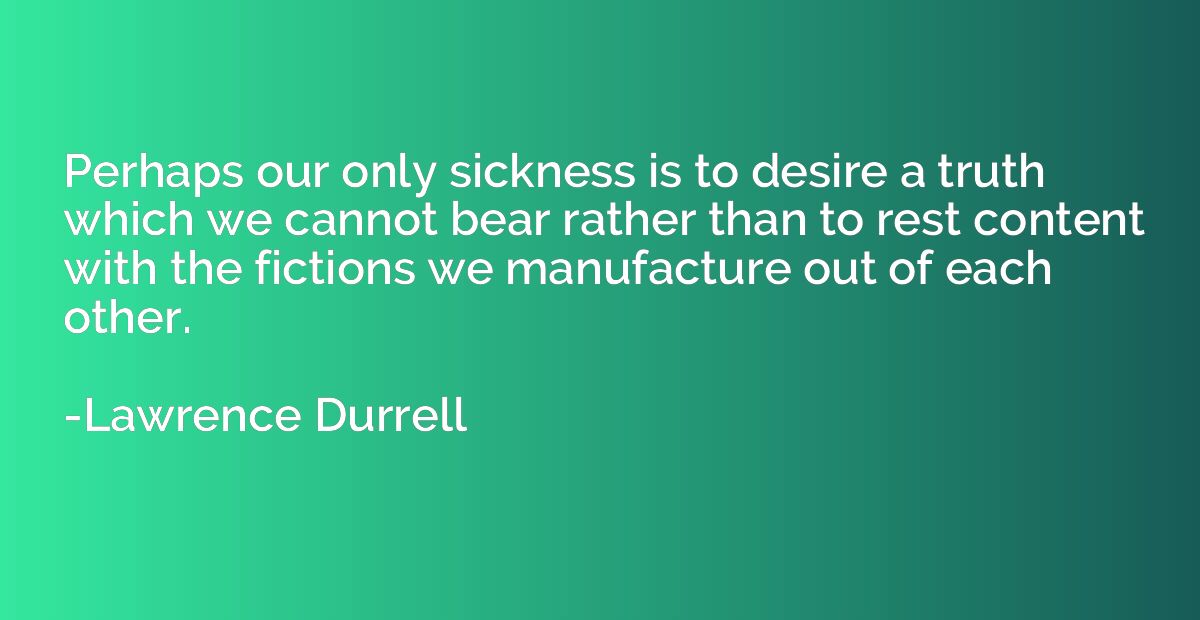Quote by Alexis de Tocqueville, Democracy
The first who attracts the eye, the first in enlightenment, in power and in happiness, is the white man, the European, man par excellence; below him appear the Negro and the Indian. These two unfortunate races have neither birth, nor face, nor language, nor mores in common; only their misfortunes look alike. Both occupy an equally inferior position in the country that they inhabit; both experience the effects of tyranny; and if their miseries are different, they can accuse the same author for them.
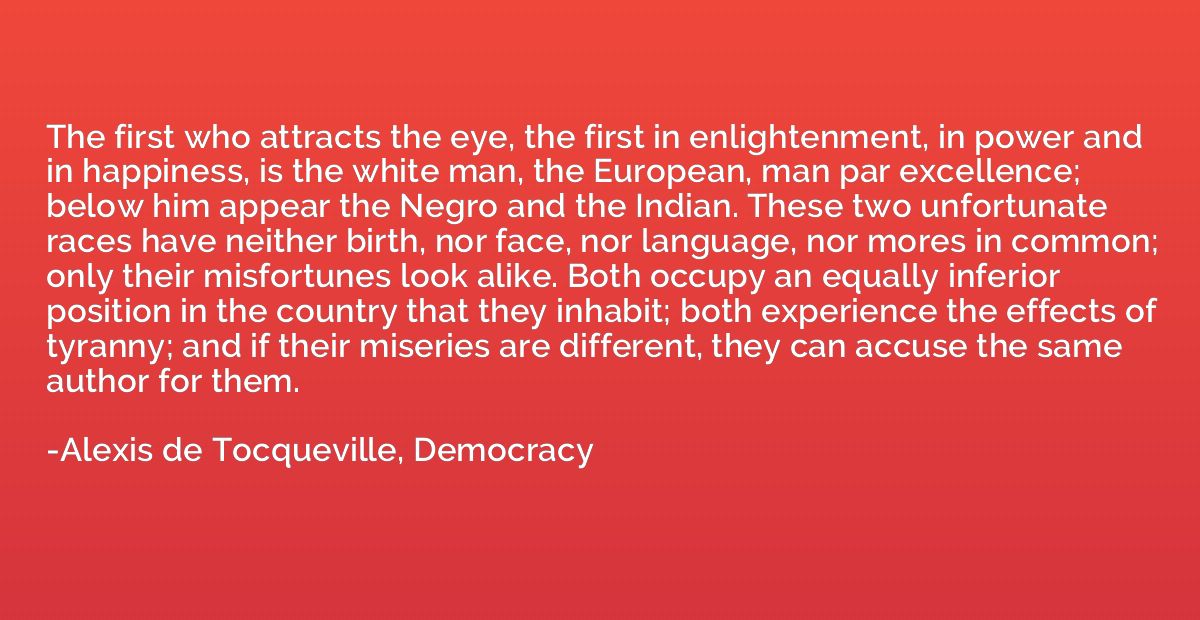
Summary
This quote appears to express a hierarchical and discriminatory view that positions white Europeans as superior to black people and indigenous populations. It suggests that the white man is more enlightened, powerful, and happy, while labeling the Negro and Indian races as unfortunate and inferior. However, it acknowledges that the two marginalized groups have shared experiences of oppression and tyranny, implying that these misfortunes are attributable to the actions of the same oppressor. Overall, the quote perpetuates racist beliefs and justifies discriminatory treatment of non-white races based on notions of racial superiority.



